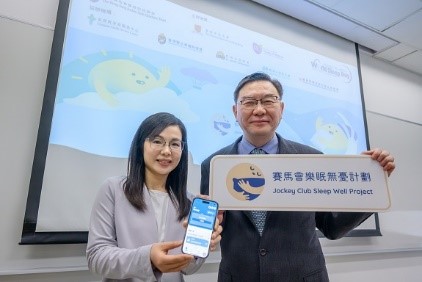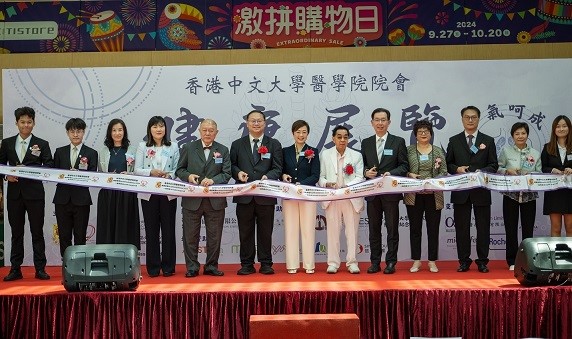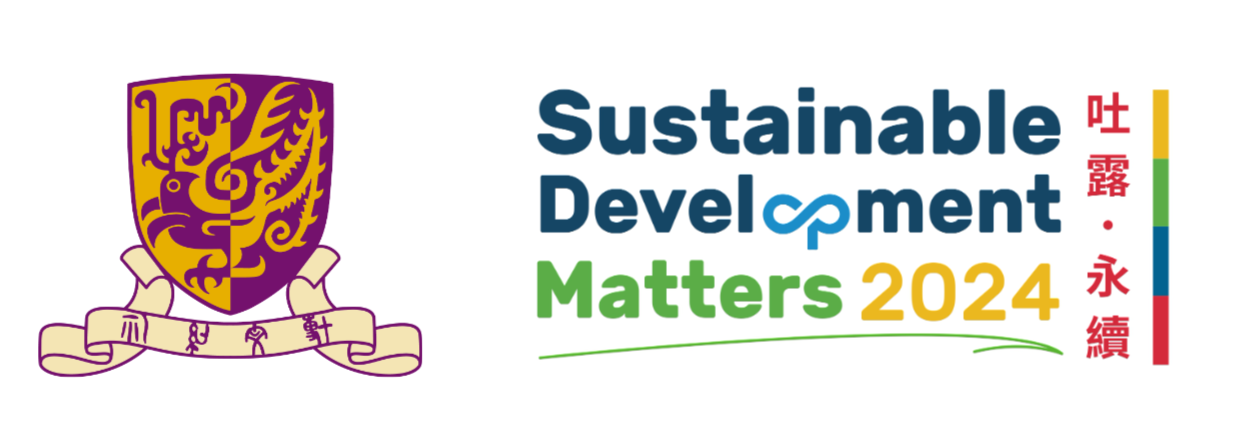SDG 3| Good Health and Well-being
Ensure healthy lives and promote well-being for all at all ages
In view of the magnitude of the public health challenges we face, it is crucial for humanity to come together with science, solutions, and solidarity. Although the covid-19 pandemic has now abated, numerous challenges have yet to be surmounted. CUHK is steadfast in its commitment to drive change by improving public health through advancements in healthcare, medical education, and research.
Curriculum
134 related courses were offered in the 2023–24 academic year.
Policies
The University places a high importance on creating a safe and health-focused environment for its community and visitors. The University Medical Service Office (UMSO), which is responsible for delivering exceptional primary healthcare and health education to the university community, plays a crucial role in this mission. In order to maintain health standards on campus and offer guidance on preventive measures and infection control in response to local and global health risks, CUHK has established a Committee on Health Promotion and Protection. UMSO serves as the operational arm of this committee. It manages a range of health initiatives including health promotion activities, vaccination drives, mental health support, counselling services, and health seminars.
Research
Professor Duan Liting and her research team from the Department of Biomedical Engineering have developed the Light-Inducible Mechanostimulator (LIMER), the world’s first technology that precisely applies force stimulation to the endoplasmic reticulum (ER) of living cells. This groundbreaking research demonstrates that the ER can sense mechanical stimuli, significantly advancing the scientific understanding of cellular force sensing. LIMER utilizes light to direct forces from motor proteins to the ER, enabling real-time observation of its responses, including rapid calcium ion release. These findings may lead to innovative treatments for diseases associated with disrupted cellular mechanical responses.
The longitudinal birth cohort study MOMmy (MOther-infant Microbiota transmission and its link to long terM health of babY), conducted by the Faculty of Medicine, investigates the gut microbiota of pregnant mothers and their infants to understand its impact on lifelong health. This large-scale birth cohort study revealed that mothers with gestational diabetes mellitus (GDM) have distinct microbiome diversity and compositions, affecting their infants’ gut microbiomes for up to 12 months. Notably, altered microbiomes were linked to larger head circumferences in infants, suggesting potential neurodevelopmental implications.
Health outreach at community
Alzheimer’s disease poses a severe threat to Hong Kong’s rapidly ageing population. In partnership with the Charles K. Kao Foundation for Alzheimer’s Disease (AD), the University has recently launched the Charles Kao CUHK BEAT AD Service, which provides free, comprehensive, community-based Alzheimer’s disease screening to Hong Kong residents aged 60 to 80. By identifying the elderly individuals who have early symptomatic Alzheimer’s disease or those who are at risk of the disease, tailor-made preventive measures can be implemented to mitigate the growing burden of dementia and slow its progression. The Charles Kao CUHK BEAT AD Service truck is now stationed on the CUHK campus. The Clinical Neuroscience Centre in the CUHK Medical Centre has also joined forces with the Foundation to establish a ‘Neurocognitive Registry’ to advance medical research on dementia and AD.

The Department of Psychiatry in the Faculty of Medicine, in collaboration with five local non-governmental organizations, has launched the Jockey Club Sleep Well Project to address the problem of insomnia, which affects approximately 30% of adults in Hong Kong. This Project promotes sleep health through various activities and provides tailored interventions for those in need. It features a stepped care model that delivers different levels of sleep support according to participants’ requirements, including personalized assistance such as cognitive behavioural therapy. With the goal of helping 10,000 individuals aged 18–70 over 3.5 years, the initiative aims to raise public awareness and enhance mental well-being within the community.

Enhancing health awareness
The Medical Society successfully hosted the 36th annual Health Exhibition under the theme ‘Breath Inspired’. The exhibition aimed to spread awareness about respiratory diseases and to promote knowledge of treatment and healthy lifestyle choices that can help lower the risks of developing these diseases. The event featured free respiratory health checks, blood glucose and cholesterol measurements, and educational talks by medical professionals. Interactive demonstrations on bronchoscopy and informative presentations about the respiratory system were also included. This event played an important role in enhancing health awareness, encouraging participants to make healthier lifestyle choices so as to mitigate the risks associated with respiratory diseases.

PREVIOUS
Zero Hunger
SDG 2
NEXT
Quality Education
SDG 4
